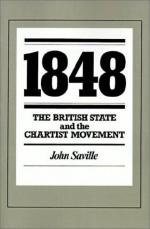|
This section contains 3,478 words (approx. 12 pages at 300 words per page) |

|
Great Britain 1838-1848
Synopsis
Chartism was a mass movement that emerged in the political disappointments and economic difficulties of the later 1830s and was active until 1848. The movement centered on the People's Charter (May 1838), which made six demands: universal manhood suffrage, annual parliaments, a secret ballot, equal electoral districts, abolition of the property qualification for Members of Parliament (MPs), and payment of MPs. Chartism was the culmination of a well-established tradition of radical politics in both its analysis and strategy. Chartism blamed political corruption and "class legislation " for working-class hardships. It sought to mobilize its supporters and intimidate its opponents by demonstrations of the strength of popular opinion in mass meetings and petitions to Parliament. Chartism proffered three petitions (in 1839, 1842 and 1848); each was rejected. The movement also marked a development in the nature of radical politics in that it was a more exclusively and assertively working-class...
|
This section contains 3,478 words (approx. 12 pages at 300 words per page) |

|


